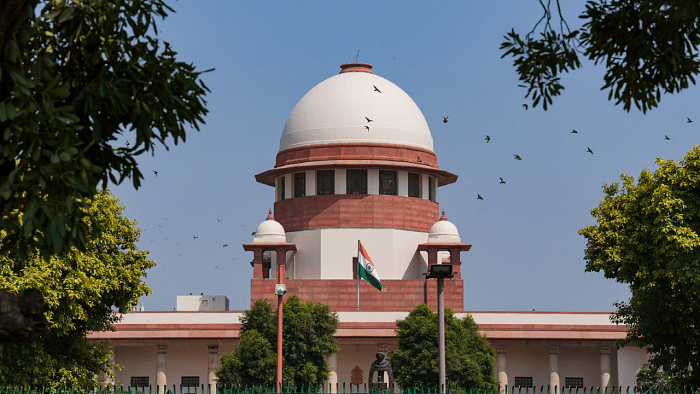
The Supreme Court has said that the purpose of filing a complaint and the initiation of criminal proceedings must exist solely to meet the ends of justice, and the law must not be used as a tool to harass the accused.
"The law is meant to exist as a shield to protect the innocent, rather than it being used as a sword to threaten them," a bench of Justices Krishna Murari and S Ravindra Bhat said.
The top court set aside the Madras High Court's order that had dismissed the plea filed under Section 482 of the Criminal Procedure Code for quashing the complaint, saying it has failed to take into consideration the facts and circumstances of the case.
Also Read | Cops don't need to do moral policing, ask for physical favour or material goods: Supreme Court
"While it is true that the quashing of a criminal complaint must be done only in the rarest of rare cases, it is still the duty of the High Court to look into each and every case with great detail to prevent miscarriage of justice. The law is a sacrosanct entity that exists to serve the ends of justice, and the courts, as protectors of the law and of the law, must always ensure that frivolous cases do not pervert the sacrosanct nature of the law," the bench said.
Hasmukhlal D Vora, promoter of M/s Chem Pharm, a trader of raw material chemicals used in food, food supplements, medicinal preparations etc and another person questioned the validity of criminal proceedings in a Chennai court for bulk purchase of pyridoxal-5-phosphate in violation of the Drug and Cosmetics Act.
In the present case, the authorities have provided no explanation for the extraordinary delay of more than four years between the initial site inspection, the show cause notice, and the complaint.
Even though the complaint was made by the Drug Inspector but no evidence has been provided by the officer to sustain the complaint. No recovery has been made from the premise of the appellants, and no evidence has been provided to sustain the argument that the impugned substance is categorised only as a drug and requires a specific license, the court added.
"There has been a gap of more than four years between the initial investigation and the filing of the complaint, and even after a lapse of a substantial amount of time, no evidence has been provided to sustain the claims in the complaint," the court said.
"In fact, the absence of such an explanation only prompts the court to infer some sinister motive behind initiating the criminal proceedings," the bench said.
